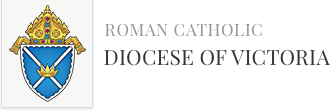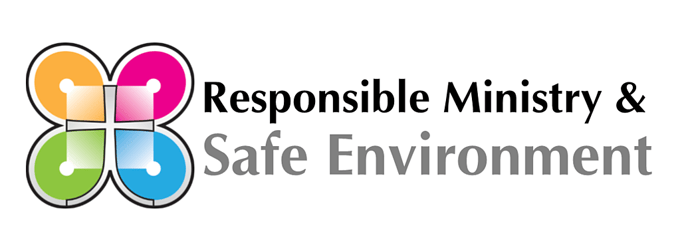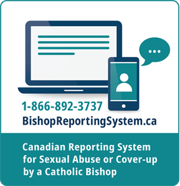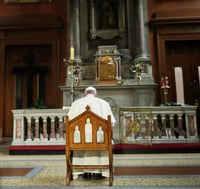| REPORT SEXUAL ABUSE TO AN INDEPENDENT REPORTING AGENCY |
|
|
To report sexual abuse by a clergy member, religious, employee, or volunteer, call 1-800-968-3146
To report sexual abuse or cover-up by a Bishop, click here or call 1-866-892-3737 |
The decision to come forward and report sexual abuse by clergy, employee, or volunteers may be difficult and often requires considerable courage. To assist you with this process, the Diocese of Victoria provides an independent reporting service (Boyd & Associates: 1-800-968-3146) staffed by a team of psychologists, counsellors and social workers.
When you call this independent reporting service, you may share your experience and explore counselling options. This service can also assist in reporting abuse to the appropriate authorities and ensuring that you are updated on developments as they occur.
Following a report of sexual abuse to this service a report will be made to the Diocese of Victoria through the Diocesan Responsible Ministry Coordinator (DRMC). The alleged perpetrator will be immediately suspended from employment and/or ministry pending an investigation. Any conviction for sexual abuse will result in immediate termination of employment and/or ministry.
Anyone who has reason to believe that a child or adult who is vulnerable may be sexually abused has a duty to report this to a child protection social worker. Please refer to The Child, Family, and Community Services Act of BC or the Ministry of Children & Family Development (MCFD) handbook: “Responding to Child Welfare Concern: Your Role in Knowing When and What to Report.”
Canadian Reporting System for Sexual Abuse or Cover-up by a Catholic Bishop
Disclosing an experience of sexual abuse can be very unsettling and deeply painful; however, it can also be an important step toward healing and justice for victims-survivors, and is necessary for the Church in its commitment to responsibility, accountability and transparency.
Sexual abuse or other sexual misconduct by a Bishop, or or whose actions or omissions intended to interfere with or avoid civil investigations or canonical investigations regarding sexual abuse, can be reported to Church authorities using the Canadian Reporting System for Sexual Abuse or Cover-up by a Catholic Bishop. This reporting system uses a confidential and secure platform designed by ClearView, an independent professional ethics firm based in Canada, to transmit your report to the proper Church authorities, who in turn will act as required by church and civil law.
Make your report online via ClearView's highly secure and strictly confidential platform.
Make your report by phone via this Canada-wide 24-hour toll-free number operated by a bilingual ClearView agent. All ClearView agents are trained to provide a verbatim account of your report.
You may also wish to contact civil authorities and are required to do so if a minor is at risk as per the laws of each Canadian province and territory. See Responding to Child Welfare Concern: Your Role in Knowing When and What to Report.
The Canadian Reporting System for Sexual Abuse or Cover-up by a Catholic Bishop was established by the Bishops of Canada in response to Pope Francis’ Apostolic Letter Vos estis lux mundi (You are the light of the World). It represents another step in the Bishops’ ongoing commitment to responsible ministry and the protection of minors and persons who are vulnerable.
Frequently Asked Questions (PDF)
How to submit your report (Infographic) - Whether online or over the phone, this infographic describes the steps when submitting a report.
As a local faith community of the Catholic Church, the Diocese of Victoria upholds and promotes the values expressed in the Gospel of Jesus Christ and in the teachings and laws of the Catholic Church. This means, among other things, that the Diocese takes a stance of deep respect for the dignity of all persons and commits itself to the well-being of all persons.

The dignity of all are respected within the parishes and schools of the Diocese of Victoria. This encompasses its programs and facilities, those we serve, particularly the young and the vulnerable as well as those who serve; clergy, religious, employees and volunteers in general. The Diocese, upholds the fundamental good of all that God has created, yet it recognizes the reality that within our humanity there is always the possibility of misconduct towards others. These policies are meant to assist the Church in responding with charity and justice.
Greg Beattie serves as the Diocesan Responsible Ministry & Safe Environment Coordinator (DRM).
Confidential Contact
Click here to send a confidential message
General

Greg Beattie
RMSE Coordinator
Phone: (250) 479-1331, extension 244![]()
The RMSE logo depicts four separate areas, each a different colour
and each representing a different aspect of RMSE:
- Diocese of Victoria (blue)
- Parishes (pink)
- Clergy, Employees, and Volunteers (yellow)
- Persons who are Vulnerable (green)
The overall shape is reminiscent of a butterfly, which is a symbol of resurrection, change, rebirth and hope.
Abuse
Any physical, verbal, emotional, or sexual conduct towards any person that causes that person to have concern or fear for his or her physical or emotional safety or well-being. Such activity may or may not be criminal in nature. Child abuse, as defined under the child protection legislation of the Province of British Columbia, also constitutes abuse under this Policy. Abuse is the violation of the physical or psychological integrity or trust of another person. Abuse may consist of one incident or it may happen repeatedly and may include:
- forcing someone, by violence or threat or through abuse of authority, to perform or submit to sexual acts;
- performing sexual acts with a minor or a vulnerable person;
- the production, exhibition, possession or distribution, including by electronic means, of child pornography, as well as by the recruitment or inducement of a minor or a vulnerable person to participate in pornographic exhibitions.
Abuse of Adults who are Vulnerable
Any act, or failure to act, that endangers the health and/or well-being of the person who is vulnerable. Such action or inaction is especially harmful when it occurs within a relationship where there is an expectation of trust. The abuse referred to would include physical, emotional, financial or sexual abuse.
Adult who is Vulnerable
An adult who is vulnerable is any person 19 years of age or over who is in need of protection by reason of disability, age, or illness. An adult who is vulnerable is unable to take care of or protect themselves against significant harm or exploitation. Vulnerabilities may include: physical disability, hearing or speech impairment, diminished mental capacity including dementia, developmental disability, brain injury or severe mental illness including bipolar disorder, major depressive disorder, substance abuse disorder, and psychosis.
Bullying and Harassment
- Includes any inappropriate conduct or comment by a person that would cause humiliation or intimidation, but
- Excludes any reasonable action taken by an employer or supervisor relating to the management and direction of others.
Examples of conduct or comments that might constitute bullying and harassment include verbal aggression or insults, calling someone derogatory names, harmful hazing or initiation practices, vandalizing personal belongings, and spreading malicious rumours.
Child Abuse
The Child, Family, and Community Services Act of BC imposes a legal obligation on all residents of the Province to report child abuse. The Act defines a “child” as a person under the age of nineteen. The abuse referred to would include physical, emotional as well as sexual abuse and neglect.
Diocesan Responsible Ministry Coordinator – DRMC
A delegate, appointed by the Bishop, who represents him in administering this Policy by receiving complaints and conducting investigations of alleged misconduct.
Exploitation
Any abuse of power, betrayal of trust or exploitation of the power imbalance that is inherent in a relationship between a member, employee or volunteer of the Diocese and a person with whom she or he has a ministerial relationship. Because of the imbalance of power, between the person offering ministry and the person to whom ministry is offered, the apparent consent of a possible victim-survivor does not in itself determine whether or not there has been an abuse of power, a breach of trust or an act of exploitation.
Faculties
Faculties in the Roman Catholic Church, as defined by Canon Law, confer ecclesiastical authority, granted by the diocesan bishop or his delegate to exercise ministry and celebrate the Sacraments within the diocese or religious institute.
Historical Child Abuse
Historical child abuse can refer to any type of abuse of children: physical, sexual, or emotional. This term commonly refers to abuse that has occurred in the past when the victim-survivor was a child, and where the victim-survivor is now an adult. Historical child abuse need not be reported to police or child protection authorities unless there is a possibility of current or future abuse. Under Canadian criminal law there is no statute of limitations on this type of abuse. A criminal prosecution can be brought against an alleged perpetrator if they are still living.
Ministerial Relationship
This is a relationship involving trust and confidence that is based primarily upon the ministry offered by a clergy or deacon, or other minister to another person. Examples of ministry include counselling, spiritual guidance, and the celebration of the sacraments.
Misconduct
This is an overarching term that encompasses abuse (physical, sexual or verbal), bullying and harassment, or an exploitation of a ministerial relationship, including financial exploitation. Misconduct could be failure to provide responsible ministry. This includes such serious performance issues such as alcohol abuse, misappropriation of funds, negligent handling of funds, undue influence in obtaining funds or gifts, lack of response to community needs, and other inappropriate behaviours.
Parish/School Responsible Ministry Coordinator – RMC
The Responsible Ministry Coordinator (RMC) is accountable and responsible for the administration of the Responsible Ministry Policy within the parish/school, working closely with the Diocesan Responsible Ministry Coordinator.
Pornographic Offence
Pornographic offence is the possession, creation or distribution of any photographic, film, video, or other visual representation that shows a person who is depicted as engaged in inappropriate sexual activity; and any written material that advocates or counsels inappropriate sexual activity.
Power Differential/Abuse of Power
Power differential in the Church context usually refers to the difference in perceived or actual power between a priest, deacon, religious brother or religious sister and the laity. Such a differential can also occur between a lay minister or employee of the Church, and the laity. Abuse of this power occurs when the priest or person in a position of authority uses this power over others for their own purposes. The priesthood and other leadership roles in the Church are a service and not a position of privilege or human power over others.
This power differential is most critical when seen in the context of children and adults who are vulnerable. The difference in power between a child and an adult is fairly obvious: knowledge, experience, authority, cognitive ability, resources, and safety. The power differential between adults can be more subtle: emotional vulnerability due to a faith crisis, marital problems, and grief/loss. This adult-to-adult power differential can also be more obvious: cognitive deficit, illness, and physical disability. Abuse can occur when sacramental power becomes too closely aligned with power in general.
Public Misconduct
Public misconduct is misconduct that becomes public or known. This could include actions that are considered to be crimes, such as indecent exposure or lewd activity. It might also include immoral actions that may not be crimes but which become known.
Sexual Abuse
Sexual abuse is the sexual involvement or attempted sexual involvement with a person identified by the local jurisdiction as a minor, understood in British Columbia as a person younger than 19 years of age.
Sexual Abuse Prevention Training
A comprehensive abuse prevention program for the Diocese of Victoria that every priest, religious, employee, or volunteer in the Diocese must complete. The number and type of course(s) required will vary depending on the nature of the person’s position.
Sexual Exploitation
Sexual exploitation is use of one’s position of power or trust to have sexual contact or attempted sexual contact with another person. Sexual exploitation includes, but is not limited to, such activity as intercourse, kissing, touching of breasts or genitals, dating during the course of a counselling relationship, verbal suggestions of sexual involvement, or demeaning sexual comments. The apparent consent of a possible victim-survivor does not determine whether there has been sexual exploitation, because the imbalance of power between the pastoral care giver and the person in a pastoral relationship undermines the validity of an apparent consent.
Sexual Grooming
Sexual Grooming is a wide variety of behaviours, such as spending large amounts of time with a particular person, affording special privileges, or providing gifts, trips and other expressions of special attention. These behaviours are often designed to establish a special bond of trust and affectionate understanding between the groomer and the person who is the object of his/ her attraction. These behaviours can also lead the person to feel indebted to the groomer for all these kindnesses. Once this bond of trust and indebtedness is established, the stage may be set for sexual advances. Because the pattern of grooming is made up of observable behaviours, these behaviours need to be challenged or reported. Sexual Grooming, whether intentional or not, is by its very nature seductive behaviour. As well as being a signal of possible future sexual activity, grooming is in itself inappropriate.
Sexual Harassment
Sexual harassment is unwanted sexualized conduct or language with others. This conduct entails unwelcome sexual advances, request for sexual favours, or other verbal or physical conduct of a sexual nature when submission to or rejection of this conduct explicitly or implicitly affects an individual’s status such as employment, when it unreasonably interferes with an individual’s performance, or when it creates an intimidating, hostile or offensive environment.
The Diocese understands that it is difficult to come forward with a report of bullying and harassment while recognizing the interest of the person reporting in keeping the matter confidential. Confidentiality will be maintained throughout the investigation to protect the interests of the complainant, the alleged bully, and any others who may report incidents of bullying and harassment.
If a cleric, religious, employee, or volunteer believes that he/she or someone else is being bullied and harassed, each incident will be documented using an Incident Report Form.
Reporting Personal Bullying and Harassment
A person who believes they are being bullied or harassed may first:
- Confront the bully in person, informing him or her that they regard the behaviour as bullying and harassment, and that it must stop. The complainant may choose to have another person witness this action; and/or,
- Inform the bully in writing if the complainant is uncomfortable with confronting him or her in person. The complainant will keep a copy of the letter for his/her files.
Lodge a Civil Complaint through WorkSafeBC
A complaint may be lodged with WorkSafeBC through their Prevention Information Line, 604-276-3100.
The officer may ask for verbal consent to speak with the employer about the incident. If consent is provided, a summary of the Incident Report will be given to the employer and the identity of the person reporting the incident will be revealed.
The burden of proof is on the employer to show there has been no discriminatory action or failure to pay wages. Accordingly, the employer may wish to provide an informal response to the Incident Report at this stage.
Both parties are free to resolve a complaint at any time. The person reporting may also withdraw the complaint at any time. In some cases, the officer’s involvement might lead to a resolution between the parties. If it doesn’t, a formal complaint may be filed.
Whether or not consent is given for the investigation, prevention officers will address the health and safety issues that have been raised. Potential discriminatory action complaints will however not be discussed with the employer without the written or verbal consent of the person reporting.
Filing the Incident Report
Incident Reports must occur in writing within the following timelines:
- Discriminatory action complaints must be submitted in writing within one year of the discriminatory action.
- Failure to pay wages complaints must be submitted in writing within 60 days after the wages should have been paid.
Flowchart: Reporting Suspected Abuse of a Child
| Follow these steps if there is an Incident Report of Child Abuse |
STEP 1 • Any person receiving information about the sexual abuse of a child immediately reports the incident to the Ministry of Children and Family Development of B.C. (MCFD) 1-800-663-9122. • Encourage the complainant with first-hand knowledge of the sexual abuse to report the incident directly to MCFD. |
|
STEP 2 Report incidents of sexual abuse to the Independent Reporting Agency at 1-800-968-3146. The Independent Reporting Agency provides a report to the Diocese. |
|
|
STEP 3 Parish/School Responsible Ministry Coordinator (RMC) immediately forwards an Incident Report to the Diocesan Responsible Ministry Coordinator (DRMC). |
|
|
STEP 4 • DRMC ensures that the appropriate civil authorities have been informed and offers full cooperation. • DRMC informs the Bishop and Chancellor. • DRMC commences an internal investigation with the approval of the statutory authorities. • Bishop immediately suspends all ministry activity of the alleged perpetrator pending completion of investigations. |
|
|
STEP 5 If the alleged perpetrator is exonerated, the Diocese will make every effort to restore the individual’s reputation. If the alleged perpetrator is convicted, they will be permanently removed from all ministry work and employment will be terminated if convicted. |
Flowchart: Reporting Suspected Abuse of a Vulnerable Adult
| Follow these steps if there is an Incident Report of Sexual Abuse of a Vulnerable Adult |
STEP 1 Any person receiving information that an adult who is vulnerable is being sexually abused, report immediately to the local police and/or VictimLink BC (1-800-563-0808). |
|
STEP 2 Report incidents of sexual abuse to the Independent Reporting Agency at 1-800-968-3146. The Independent Reporting Agency provides a report to the Diocese. |
|
|
STEP 3 The Parish/School RMC forwards report to DRMC or complainant may submit misconduct complaint directly to DRMC at 250-479-1331, ext. 223. |
|
|
STEP 4 If the alleged perpetrator is exonerated, a plan may be created to reintegrate the person back into ministry and/or employment. The alleged perpetrator will be permanently removed from all ministry work and employment will be terminated if convicted. |
Flowchart: Handling Bullying and Harassment Complaints
| Follow these steps to handle a Bullying and Harassment Incident |
STEP 1 • The DRMC upon receiving a complaint is responsible for making the complainant aware that he/she has the following response options: • Confront the individual either in person or in writing to request that the behaviour be stopped. Another person may be present to witness this conversation. • The DRMC will determine if an informal resolution is possible. If it is, mediation will be arranged. • If a resolution is achieved, a resolution agreement will be drawn up, signed by both parties, and ratified by the mediator and the DRMC. A copy will be placed in the Incident file. • If a resolution is not reached, a formal investigation will proceed during which, if appropriate and if the parties agree, further informal resolution meetings may take place. |
|
STEP 2 • In the event that a formal complaint or a legal complaint is made, the complainant will complete an Incident Report Form. • Upon receiving the Incident Report, the DRMC will launch an investigation. • The complainant will have an opportunity to meet with a counsellor. • The respondent will be advised of the nature of the complaint and that the investigation is proceeding. Interviews will be conducted with all the relevant parties, and all the relevant evidence will be collected. |
|
|
STEP 3 The DRMC will interview the respondent, and give the respondent reasonable opportunity to consider the complaint. The respondent will be provided with an opportunity to consult with their legal counsel. Depending on the nature of the complaint, the DRMC may recommend to the respondent’s supervisor that they be removed from their position. |
|
|
STEP 4 • The DRMC will record the proceedings of the investigation. • Upon the completion of the investigation, the DRMC will prepare a report with the details of the complaint, description of the evidence gathered, and recommendations of action (if any) to be taken by the respective supervisor. • A copy of the written report will be provided to the complainant and to the respondent. |
|
|
STEP 5 Upon receipt of the DRMC’s written report, the supervisor will give the complainant and the respondent reasonable opportunity to consult with legal counsel and to respond to the report in writing. |
|
|
STEP 6 • If misconduct has been proven, the supervisor will determine the appropriate discipline, depending on the circumstances. • A written warning will be issued, with a copy filed. • A reprimand or censure may be given in person, with documentation filed. • Opportunities for rehabilitation may be provided, with ongoing monitoring after the person resumes work. • Administrative leave, suspension from ministry, employment, or volunteer work may occur until there is clear evidence of rehabilitation. The person’s appointment, employment, or volunteer work may be terminated. |
|
|
STEP 7 If no misconduct was proven to have occurred, a copy of the report and the supervisor’s decision will be kept in a confidential file. |
|
|
STEP 8 The respondent will be informed that he/she has a right to appeal the disciplines of administrative leave, or termination. |
Why do we need the RMSE Policy?
The Responsible Ministry and Safe Environment (RMSE) Policy is intended to keep everyone in the Diocese safe from misconduct.
Does the RMSE Policy apply to everyone in the Diocese?
The RMSE Policy applies to everyone working for or under the auspices of the Diocese of Victoria: clergy, religious, employees, and volunteers.
Why is the Rule of Two important?
Our goal as a Church is to spread the Good News. The best way to proclaim the Gospel is to live it. Jesus sent his disciples out two-by-two. When we minister in pairs, we are living Jesus’ message. And interestingly enough, Jesus’ message protects all participants. When two qualified volunteers (the Rule of Two) are present, the risk of abuse and the risk of an allegation are both drastically reduced. Having other adults present protects you from false allegations. God’s pastoral practice is good safe environment practice – for everyone!
How are volunteers screened under the RMSE Policy?
Volunteers are screened according to the level of responsibility and risk associated with their position.
Who requires a Criminal Record Check?
All clergy, religious and employees must complete a police criminal record check as part of their screening process. Medium/High risk volunteers must be issued a Clearance Letter from the BC Ministry of Justice, Criminal Record Review Program (CRRP) as part of their screening process. Volunteers apply for their Clearance Letter online. Teachers are approved by CRRP through the Teacher Regulation Branch of the BC Ministry of Education.
Is a Criminal Record Check all that is needed for Screening?
A Criminal Record Check is only part of the overall screening process for clergy, religious, employees, and Medium/High Risk volunteers. The Diocese subscribes to an 8 step safety process that includes a structured screening process comprised of interviewing, checking references, orientation, training, and supervision.
Who must complete the Training in the Diocese?
All clergy, religious, employees, and volunteers must complete the RMSE online training program.
I have been volunteering with my parish for 20 years and am trusted by my pastor and the people I serve. Why do I now have to get a criminal record check?
The Church is a trusting environment, and adults traditionally have not been carefully screened or monitored in its ministries. Now we have come to understand that screening is the first opportunity to prevent abusers from having contact with the children and vulnerable persons we serve. Screening for Medium/High Risk Volunteer positions, which includes the criminal record check, lets applicants know that we take the safety of our parishioners seriously. Screening can only be effective if it is applied consistently to everyone who serves in ministry, whether they are experienced or newcomers.
To download the following documents, please click on the relevant link below:
- RMSE Policy Manual
- RMSE Sexual Abuse Protocol – Addendum I
- RMSE Bullying & Harassment Protocol – Addendum II
- RMSE Volunteer Ministry Positions – Addendum III
- RMSE Volunteer Screening Guide 2025
To download the following RMSE forms, please click on the relevant link below:
- Volunteer Application (Fillable)
- Covenant of Care Agreement
- Incident Report (Fillable)
- RMSE Brochure
Resources for Parish/School Responsible Ministry Coordinators (RMCs)
RMSE Resources
Disclaimer: The Diocese of Victoria strives to be consistent with Catholic Church teaching in all its content. On this page are links to resources, including some from non-church organizations. These links do not constitute an endorsement by the Diocese of Victoria of all content on these sites and none should be inferred. The Diocese of Victoria is not responsible for the content of these external organization’s websites.
Letters from the Diocese of Victoria
- Pastoral Letter to all volunteers from Bishop Gary Gordon, June 18, 2019
- Pastoral Letter from Bishop Gary Gordon, August 21, 2018
- Letter from RMSE Coordinator, October 4, 2018
Parish and School Resources
Praesidium Academy Course Requirements for Parishes and Schools
RMSE Volunteer Screening Guide 2025
Vos Estis Lux Mundi
Apostolic Letter by Pope Francis
Pontifical Commission for the Protection of Minors
Protecting Minors from Sexual Abuse: A Call to the Catholic Faithful in Canada for Healing, Reconciliation, and Transformation
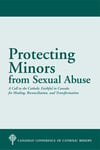 Entitled Protecting Minors from Sexual Abuse: A Call to the Catholic Faithful in Canada for Healing, Reconciliation, and Transformation, this document of the Canadian Conference of Catholic Bishops (CCCB) was unanimously adopted by the Bishops of Canada on September 27 during their 2018 annual Plenary Assembly. Since then, Bishops have taken time to familiarize themselves with its contents and to consider with their diocesan/eparchial staff how to ensure its implementation in their dioceses/eparchies as well as how best to inform and educate clergy, members of religious communities and lay personnel.
Entitled Protecting Minors from Sexual Abuse: A Call to the Catholic Faithful in Canada for Healing, Reconciliation, and Transformation, this document of the Canadian Conference of Catholic Bishops (CCCB) was unanimously adopted by the Bishops of Canada on September 27 during their 2018 annual Plenary Assembly. Since then, Bishops have taken time to familiarize themselves with its contents and to consider with their diocesan/eparchial staff how to ensure its implementation in their dioceses/eparchies as well as how best to inform and educate clergy, members of religious communities and lay personnel.
- Protecting Minors from Sexual Abuse (Executive Summary)
- Protecting Minors from Sexual Abuse (Full document on CCCB website)
- Recommendations and Action Points
- CCCB Guidelines
- Reporting and Resources for Victim-Survivors
Ministry of Children & Family Development (B.C.)
- MCFD Website
- Child, Family & Community Service Act
- Reporting Child Abuse in B.C.
- Child Abuse Prevention Handbook: Knowing When and What to Report
- Child Abuse Prevention Handbook: For Service Providers
WorkSafe BC
- Bullying and Harassment Page
- Responding to workplace Bullying and Harassment
- Bullying and Harassment Tool Kit
- Bullying and Harassment FAQ
- Bullying and Harassment online Questionnaire
United Nations Human Rights
Convention on the Rights of the Child (The Full Text)
From the Convention are two Articles that outline recommendations
for the protecting of minors;
Article 3 and Article 19 (quoted below).
- In all actions concerning children, whether undertaken by public or private social welfare institutions, courts of law, administrative authorities or legislative bodies, the best interests of the child shall be a primary consideration.
- States Parties undertake to ensure the child such protection and care as is necessary for his or her well-being, taking into account the rights and duties of his or her parents, legal guardians, or other individuals legally responsible for him or her, and, to this end, shall take all appropriate legislative and administrative measures.
- States Parties shall ensure that the institutions, services and facilities responsible for the care or protection of children shall conform with the standards established by competent authorities, particularly in the areas of safety, health, in the number and suitability of their staff, as well as competent supervision.
- States Parties shall take all appropriate legislative, administrative, social and educational measures to protect the child from all forms of physical or mental violence, injury or abuse, neglect or negligent treatment, maltreatment or exploitation, including sexual abuse, while in the care of parent(s), legal guardian(s) or any other person who has the care of the child.
- Such protective measures should, as appropriate, include effective procedures for the establishment of social programmes to provide necessary support for the child and for those who have the care of the child, as well as for other forms of prevention and for identification, reporting, referral, investigation, treatment and follow-up of instances of child maltreatment described heretofore, and, as appropriate, for judicial involvement.

The Process involves:
- Compassionate Listening
- Acknowledgment of the courage of the victim-survivor
- Affirmation and recognition of the hurt caused
- Reassurance that it is never the victim-survivor’s fault
- Expression of deep remorse and sorrow
- Personal Empowerment of victim-survivors
- The Diocese will provide pastoral support and healing resources for victim-survivors of abuse and their families where such abuse has occurred within our Diocese
When an allegation of sexual abuse has been received against any clergy, religious, lay employee, or volunteer:
- The individual is immediately removed from Ministry.
- The police and the Ministry of Children & Family Development (MCFD) are immediately notified and an investigation will commence.
When the accused is convicted of an offense:
- Anyone convicted of an offense against children or vulnerable adults will be permanently removed from any Ministry and will not be permitted to exercise Ministry in the Diocese of Victoria in the future.
The Diocese will welcome those who disclose sexual abuse with trust, charity, and a readiness to respond. From the moment a person reports the sexual abuse, the victim-survivor’s needs are the first priority. The process for a pastoral encounter includes compassionate listening, acknowledgment of the courage of the victim-survivor, affirmation and recognition of the hurt caused, reassurance that it is never the victim-survivor’s fault, expression of deep remorse and sorrow, and ultimately, the empowerment of the victim-survivor. The Diocese will provide pastoral support and healing resources for victim-survivors and their families where possible.
Sexual abuse can be perpetrated by anyone, but it is especially damaging when committed by a member of the clergy, religious, diocesan employee, or lay leader. It can be extremely difficult and painful to disclose such abuse. A person can find that the memory of sexual abuse can trigger intense emotions, unexpected behaviours, anger towards the Church, and even lead to a loss of faith.
If the alleged perpetrator is deceased, a report of historical child sexual abuse involving a person who is now an adult need not be reported to the police, or the Ministry of Children and Family Development of BC.
Where the alleged perpetrator is deceased, the Diocesan Responsible Ministry Coordinator (DRMC) will work with the victim-survivor to determine if they wish to report the sexual abuse either to the police or religious organization. In all instances, the Diocese will be sensitive to the needs of the victim-survivor and ensure that their well-being is the highest priority.
If the alleged perpetrator is living and active in Ministry, the first priority will be the protection of children, and the prevention of possible sexual abuse now and in the future. In this case, a report must be filed with the relevant external authorities mentioned above.
If the alleged perpetrator is still living, and inactive in Ministry, the DRMC will work closely with the victim-survivor to determine if the matter will be reported.
Any clergy, religious, employee, or volunteer of the Diocese having information concerning misconduct indicating that a child was sexually abused in the past will complete an Incident Report Form and forward it to the DRMC.
An adult who is vulnerable is any person 19 years of age or older who is in need of protection by reason of disability, age, or illness. An adult who is vulnerable is defined as one who is unable to protect themselves against significant harm or exploitation. Some common examples include: physical disability, hearing or speech impairment, diminished mental capacity including dementia, developmental disability, brain injury, or severe mental illness including bipolar disorder, major depressive disorder, substance abuse disorder, or psychosis.
The perceived or actual power differential between a priest and another person in authority can play a significant role in sexual abuse between adults. The power differential between adults can be subtle: emotional vulnerability due to a faith crisis, marital problems, and grief/loss. The adult to adult power differential can also be more obvious: cognitive deficit, illness, and physical disability. Abuse can occur when sacramental power becomes too closely aligned with power in general.
Sexual abuse is any act, or failure to act, that endangers the health, psychology, and/or well-being of the person who is vulnerable. Such action or inaction is especially harmful when it occurs within a relationship where there is an expectation of trust.
The Diocese recognizes that all persons have a duty and an obligation to immediately report to the local Police Department all information of any real, potential, or suspected sexual abuse of adults (19 years or older) who are vulnerable.
If the alleged sexual abuser is a clergy member, religious, employee, or volunteer of the Diocese, the Diocesan Responsible Ministry Coordinator (DRMC) must also be advised of the allegations.
Screening of New Clergy from outside the Diocese
-
Basic information, work history and educational background
-
Reference from Bishop or Religious Superior
-
Personal Reference Checks
-
Criminal Record Check
Screening of Temporary Replacement Clergy from outside the Diocese
-
A Letter of Declaration of Good Standing is required from the Bishop or Religious Superior of their Diocese, which includes an attestation of a clear Criminal Record Check.
-
Necessary Faculties must be granted to the priest prior to exercising ministry in the Diocese.
A Diocesan Ministry Appointment Includes the following:
-
The Model Code of Conduct is reviewed and signed.
-
The Covenant of Care Agreement is reviewed and signed.
-
The RMSE Policy and Diocesan Protocols are reviewed.
-
The successful completion of the on-line abuse prevention training program.
-
An Experienced Pastor will be designated to serve as a ministry mentor for new clergy.
All clergy, religious, employees, and medium/high risk volunteers of the Diocese will:
-
complete the Diocesan Volunteer Application Form or appropriate employment application form;
- read, understand, and sign the Covenant of Care Agreement which ensures that those working for the Diocese/parish clearly understand the accepted behaviour that all must follow.
- obtain a criminal record check
-
volunteers: obtain a Clearance Letter from the BC Ministry of Justice (to be renewed every five years);
-
employees: obtain a CRC from the RCMP (to be renewed every five years);
-
- complete the online abuse prevention training, and;
- familiarize themselves with the RMSE Policy; participate in training programs as appropriate to their ministry;
Low risk volunteers of the Diocese will:
-
complete the Diocesan Volunteer Application Form;
-
read, understand, and sign the Covenant of Care Agreement which ensures that those working for the Diocese/parish clearly understand the accepted behaviour that all must follow;
-
complete the online abuse prevention training;
-
familiarize themselves with the RMSE Policy, and;
-
participate in orientation or training programs as appropriate to their ministry;
Building Healthy Communities
 Jesus invites us to a special communion with him, and one another. In Scripture, Jesus tells us: “Let the children come to me, and do not stop them for it is to such as these that the kingdom of heaven belongs.” (Mt. 19:14) It is the responsibility of the entire community to protect minors and other persons who are vulnerable. Healthy communities are well-informed and transparent. They encourage a sense of solidarity, and a spirit of co-responsibility to protect and ensure the well-being of all (with a particular concern for the protection of minors and adults who are vulnerable). Clergy and laity must work together to build a healthy community for the safety and well-being of all.
Jesus invites us to a special communion with him, and one another. In Scripture, Jesus tells us: “Let the children come to me, and do not stop them for it is to such as these that the kingdom of heaven belongs.” (Mt. 19:14) It is the responsibility of the entire community to protect minors and other persons who are vulnerable. Healthy communities are well-informed and transparent. They encourage a sense of solidarity, and a spirit of co-responsibility to protect and ensure the well-being of all (with a particular concern for the protection of minors and adults who are vulnerable). Clergy and laity must work together to build a healthy community for the safety and well-being of all.
There are many ways for us to build a healthy, vibrant community. To assist communities and parishes on this journey, here are a few resources for you to explore and consider.
Know and live the Catholic social teachings
| Compendium of the Social Doctrine of the Church Pontifical Council for Justice and Peace |
 |
| Strong Words: Ten Building Blocks of Catholic Social Teaching First published in Scarboro Missions Magazine, Sep. 1999 |
 |
Continue to work toward building a healthy and vibrant parish
|
10 Signs of a Vibrant Parish by Denise Simeone |
 |
Pray for and support our clergy and lay leaders
| Prayers for priests and those in consecrated life |  |
Eternal God,
Bless your Church with holy and faithful priests, deacons, brothers, and sisters.
Give those you have called to the married state and those you have chosen to live as single persons in the world, the special graces that their lives require.
Form us all in the likeness of Your Son, so that in Him, with Him, and through Him
we may love You more deeply, and serve You more faithfully, always and everywhere.
With Mary, we ask this through Christ, our Lord.
Amen.
Good and Gracious God,
We entrust our parishes, schools and workplaces to you. Help us to remember you are always present in every space and place. We desire to speak your peace, your grace, your mercy, and your perfect order in our Diocese. We acknowledge your power over all that will be spoken, thought, decided, and done within our places of work.
Lord, we thank you for the gifts with which you have blessed us. We commit to using them responsibly in your honour. Give us the strength, energy and enthusiasm to do our tasks big or small. May all of our endeavours and projects bring you glory.
Come, Holy Spirit and fill our churches and schools so they will continue to be places of welcome and light. Dispel all darkness as we open our hearts to your healing love.
May the service and work we do and the way we do it bring faith, joy, and hope to all whom we encounter.
We humbly ask this through your Son, Jesus Christ.
Amen.
